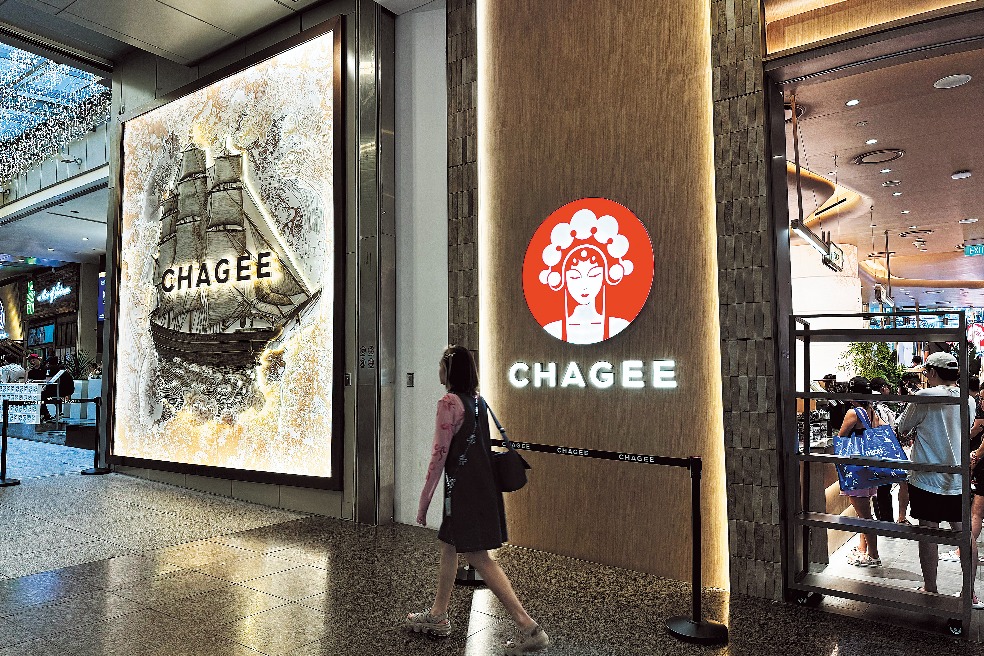H World unveils expansion plans to further tap domestic travel market


H World Group, a Shanghai-headquartered hospitality group operating more than 11,600 hotels in 19 countries and regions, will tap into China's surging travel demand and expanding middle-income population, while accelerating its international expansion across Southeast Asia over the next five years, a senior executive of the company said.
The company's growth is underpinned by a wide-ranging brand portfolio, comprising 33 hotel and serviced apartment brands such as Hanting Hotel, Ji Hotel, Orange Hotel and Steigenberger Hotels and Resorts.
"We see China as a booming market with great depth and scale. Its market diversity and future demand offer great growth potential, serving as the core and foundation for our global operations," said Jin Hui, the group's CEO.
Highlighting that China's domestic travel market has gained strong momentum in recent years, driven by favorable policies, consumption incentives, well-developed high-speed railway networks and infrastructure for electric vehicles, Jin said these factors have made cultural and leisure travel a growing necessity for consumers.
For example, the tourism boom in Zibo, Shandong province, Harbin, Heilongjiang province, and many cities across Jiangsu province — fueled in part by the wildly popular Jiangsu Football City League, an amateur football competition in the eastern province — reflects the surge in travel demand across China.
"Meanwhile, experience-led tourism, driven by marathons, concerts, winter sports and the silver economy, has become mainstream, with cultural and sports events shaping a new wave of travel preferences across the country," Jin said. "There are still many underserved markets across China, and unlocking those opportunities is our top strategic priority."
Established in 2005, H World Group currently operates in around 1,400 cities and counties across China. The Nasdaq — and Hong Kong-listed company plans to expand its footprint to 2,000 locations nationwide and open 20,000 hotels by 2030.
In addition to building a strong domestic foundation, the company also aims to accelerate its global footprint, with a focus on expanding in Southeast Asia over the next five years.
After acquiring German hotel group Deutsche Hospitality in 2020, H World Group runs more than 100 hotels across Germany and signed 10 new projects in Southeast Asian markets, including Laos, Cambodia and Malaysia, earlier this year.
"Over the next five years, we aim to become a key international player in the midscale and mass-market hotel segments across Southeast Asia," said Jin.
Unlike coffee chains or packaged goods, he said that the hotel industry involves a far more complex supply chain that makes a measured, step-by-step approach to global expansion both pragmatic and sustainable for hotel operators.
Thanks to cultural richness and eased visa rules, China is also attracting more international visitors.
Since June 12, China's 240-hour visa-free transit policy has been expanded to include citizens of 55 countries, according to information released by the National Immigration Administration.
China's trade in travel-related services soared 12.2 percent year-on-year to reach 920 billion yuan ($128.4 billion) between January and May, while the country recorded a 5.3 percent increase on a yearly basis in inbound travel services, according to statistics released by the Ministry of Commerce in early July.
Li Jun, a researcher specializing in trade in services at the Beijing-based Chinese Academy of International Trade and Economic Cooperation, said that the tourism sector in China and many other countries has entered a new phase of structural growth in recent years, pushed by supportive macroeconomic policies, simplified visa processes and a rising demand for cultural and experience-led travel.
"In China, a highly efficient and affordable transport network, combined with the rapid rise of the experience economy, is transforming travel patterns," said Li, adding that this shift is pushing hotels and related industries to fast-track digital upgrades and expand internationally to meet increasingly diverse and personalized demand.




































